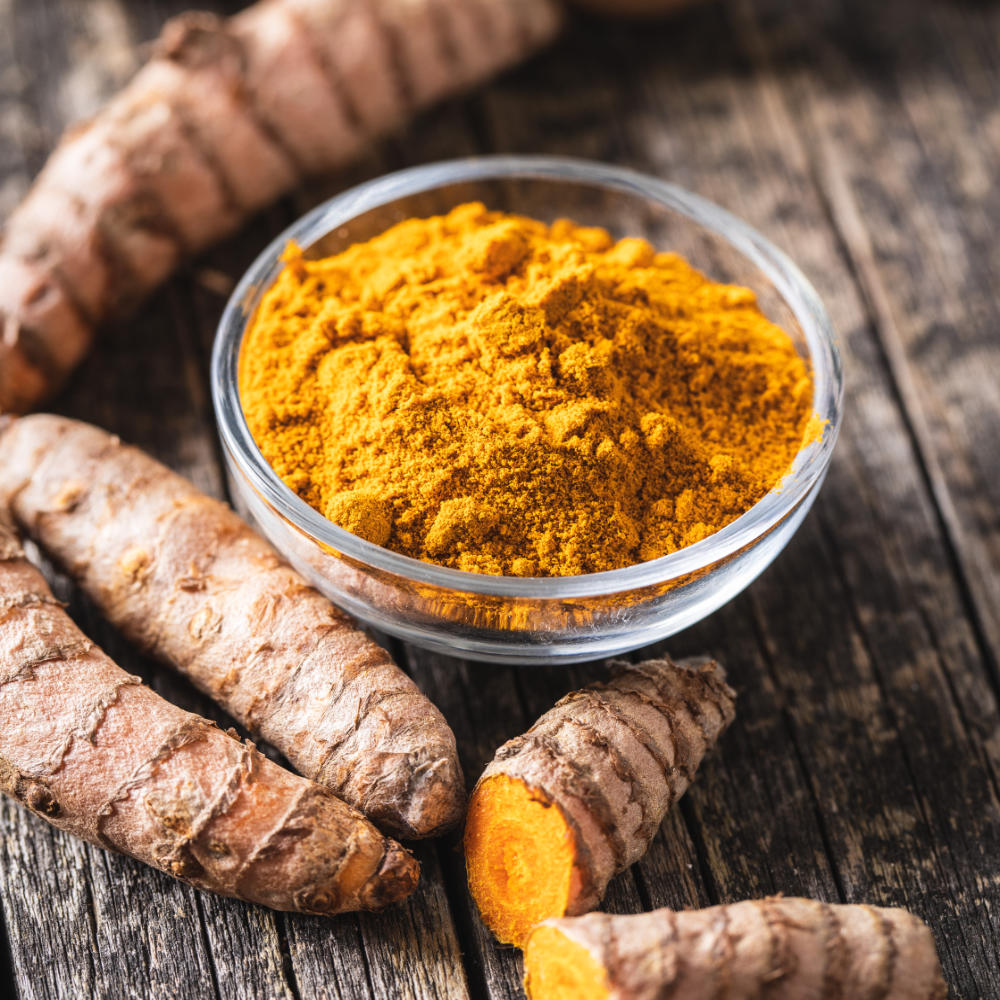Curcumin Benefits

Is turmeric good for you?
Yes! Research indicates that turmeric and curcumin may help treat symptoms and even prevent various conditions, including:
- ✅ Osteoarthritis and rheumatoid arthritis
- ✅ Depression and anxiety
- ✅ Diabetes
- ✅ Cancer
- ✅ Skin conditions such as acne, eczema, and psoriasis
- ✅ Age-related chronic diseases
Here are some of the questions we are most commonly asked about turmeric. If you can’t find the information you’re looking for, please get in touch. Our expert team will be happy to help.
Turmeric FAQs
What health benefits does turmeric offer?
Turmeric has received a great deal of interest from scientific and medical communities over recent years.
It is known to offer natural anti-inflammatory and antioxidant effects. This means it can help protect against a wide range of chronic and common health conditions, many of which are caused by excessive inflammation.
Curcumin is the key active ingredient in turmeric. Studies have shown it can help to:
- Lower cholesterol
- Improve blood sugar control
- Reduce the symptoms of anxiety
- And more...
What is the difference between turmeric and curcumin?
Turmeric is an ancient golden spice, often popular in cooking and used as a traditional herbal medicine. It is also a rhizome and a member of the ginger family. Turmeric contains many medicinal compounds, including one called curcuminoids – curcumin is one of these curcuminoids.
Curcumin is the key active ingredient in turmeric, making up approximately 3% of the root. It gives the spice its instantly recognisable golden glow and is responsible for many of the healing properties it has been used for, for thousands of years.
Can turmeric help relieve the symptoms of arthritis?
There is a great deal of evidence to suggest that turmeric can help relieve the pain of arthritis, in both osteoarthritis (OA) and rheumatoid arthritis (RA).
In fact, one study showed that taking turmeric extract supplements for just 8-12 weeks could significantly reduce pain and inflammation. The improvements seen were similar to those delivered by ibuprofen and diclofenac sodium, a widely prescribed arthritis treatment.
Is turmeric more effective as a powder or liquid?
Evidence suggests that liquid forms of turmeric may have advantages over tablets, capsules, and powders. However, that form of turmeric is not the most important factor.
Because turmeric is highly insoluble and poorly absorbed by the body, the best form is one that overcomes that problem, whether that is liquid, powder, or any other type of supplement.
With our C3 Cura™ Technology, our liquid curcumin is more soluble and more easily absorbed by the body.
Are there any side effects?
Clinical trials have confirmed that curcumin is well tolerated by most people, so you are unlikely to experience any side effects.
However, taking very high doses, above the recommended limits, can lead to side effects such as headache, rash and gastrointestinal symptoms.
